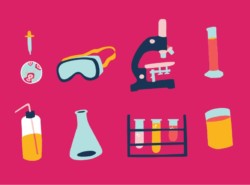
Enhancing CAR T Cell Therapy for Breast Cancer
Published: 05/16/22 11:34 AM

Phillip Darcy
Project Description: In recent years, chimeric antigen receptor (CAR) T cell therapy, a specialised form of immunotherapy, has shown unprecedented success in treating some blood cancers. Indeed, in over 90% of these patients, their cancer was completely eliminated following CAR T therapy. However, this success rate has not been replicated in solid tumours such as breast cancer. This study aims to re-engineer immune cells, T cells, in the laboratory and transfer them back to the patient to be able to hunt down breast cancer cells and destroy them.
Why This Work is Needed: Whilst very effective in certain blood cancers, CAR T therapy has not been as successful in the treatment of breast cancer. This is because CAR T cells designed to date do not persist long enough in the breast tumour to be effective. In addition, solid tumours like certain breast cancers have more immunosuppressive defense mechanisms compared to those found in blood cancers leading to less effective treatment outcomes for patients.
Expected Outcomes: Results of this project have the potential to transform CAR T cell therapy for the treatment of breast cancer, particularly triple negative breast cancer, a breast cancer subtype with the poorest outcomes and most frequently diagnosed in younger women.
Project Details
CAR T cell therapy is a new type of immunotherapy where a patient’s own immune cells (T lymphocytes) are altered in the laboratory to give them extra cancer-fighting abilities. The alteration occurs through the addition of a new protein, a receptor, to the surface of the T cells, which directly helps the T-cells to identify and attack cancer cells. Large numbers of these modified cells can then be grown in the laboratory and given back to the patient through an infusion.
This study, led by Professor Phillip Darcy from the Peter MacCallum Cancer Centre, will investigate methods to improve the “persistence” of CAR T cells, i.e. how long they will last after an infusion. The team will improve the CAR T cells by adding special factors known to be critical for inducing T cell memory. In addition, they will use these cells in combination with other immunotherapy drugs.
This new two-pronged approach is likely to overcome some of the main challenges in the use of CAR T therapy in solid tumours. This will hopefully allow the technology to advance into clinical trials.